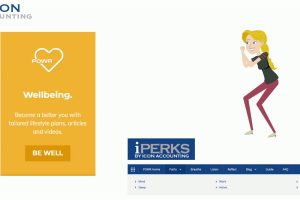The Ultimate Guide to Balanced Living with iPerk’s Expert Advice

Introduction to Balanced Living
Understanding the Importance of Balance
In today’s fast-paced world, the concept of balanced living has never been more crucial. Many individuals find themselves juggling multiple responsibilities—career, family, health, and social life—often feeling overwhelmed as they struggle to keep everything in harmony. Achieving balance is important not only for mental and emotional well-being but also for physical health. Imagine someone who spends their mornings racing to meet deadlines at work, their afternoons dealing with family obligations, and their evenings unwinding with unhealthy snacks and binge-watching television. This cycle can quickly lead to burnout and dissatisfaction. Instead, balancing various aspects of life—even if it feels challenging—can promote a healthier, happier existence. Some key reasons why balance is essential include:
- The Ultimate Guide to Balanced Living with iPerk’s Expert Advice
- Introduction to Balanced Living
- Understanding the Importance of Balance
- iPerk's Approach to Balanced Living
- The Role of Nutrition in Balanced Living
- Nutrient-Rich Foods to Include in Your Diet
- Balancing Macros for Optimal Health
- Incorporating Physical Activity into Your Daily Routine
- iPerk's Recommended Exercise Regimens
- Benefits of Maintaining a Regular Workout Schedule
- Prioritizing Mental Wellbeing for Balanced Living
- Stress Management Techniques and Meditation
- Enhancing Mindfulness in Everyday Life
- Cultivating Healthy Relationships and Social Connections
- Building Strong Connections with Loved Ones
- Creating a Supportive Social Network for Better Wellbeing
- Improved Mental Health: A balanced life can help reduce anxiety and stress levels.
- Enhanced Productivity: When individuals are balanced, they tend to be more focused and effective in their tasks.
- Better Relationships: A sense of balance allows time for quality interactions with loved ones.
iPerk’s Approach to Balanced Living
At iPerk, the philosophy of balanced living goes beyond just eating right or exercising regularly. It emphasizes a holistic approach that incorporates various facets of life—nutrition, physical activity, mental well-being, and social connections. iPerk believes that achieving balance is a personal journey, and the company provides resources and support to help individuals find their unique path. Some core components of iPerk’s balanced living approach include:
- Nutrition Guidance: Offering meal plans that integrate nutrient-rich foods tailored to individual needs.
- Fitness Programs: Tailoring exercise regimens that fit different lifestyles, making it easier to stay active without feeling overwhelmed.
- Mindfulness Practices: Providing techniques for stress management and mindfulness to enhance mental clarity and emotional stability.
- Community Building: Encouraging social connections through events and groups, fostering supportive relationships that contribute to overall well-being.
By focusing on these essential elements, iPerk champions the idea that a balanced life is attainable for everyone, no matter their current circumstances. This philosophy inspires individuals to take small, manageable steps towards improving their overall lifestyle, reinforcing the belief that every step counts on the journey to balanced living.
The Role of Nutrition in Balanced Living
Nutrient-Rich Foods to Include in Your Diet
As we delve into balanced living, it’s essential to recognize that nutrition plays a pivotal role in how we feel and function each day. Consuming a variety of nutrient-rich foods can significantly elevate our overall well-being. Picture this: your body is like a high-performance car; it needs the right fuel to operate at its best. Here are some nutrient-rich foods that should find a home in your diet:
- Leafy Greens: Vegetables like spinach, kale, and swiss chard are packed with vitamins, minerals, and antioxidants that support various bodily functions.
- Whole Grains: Foods like quinoa, brown rice, and oats provide sustained energy and are rich in fiber, promoting good digestive health.
- Lean Proteins: Sources such as chicken, fish, tofu, and legumes help repair and build tissues, while keeping you full longer.
- Colorful Fruits: Berries, citrus fruits, and bananas not only satisfy sweet cravings but also deliver essential vitamins and hydration.
Incorporating these foods into daily meals can be as simple as adding a spinach smoothie in the morning or snacking on mixed berries in the afternoon.
Balancing Macros for Optimal Health
Understanding macronutrients—carbohydrates, proteins, and fats—is also vital for a balanced diet. Each plays a unique role in maintaining health, and finding the right balance can enhance energy levels and general wellbeing. Here’s a breakdown of how to think about your macros:
- Carbohydrates (45-65% of daily intake): These are the body’s primary energy source. Choose complex carbohydrates like whole grains, fruits, and vegetables over refined sugars.
- Proteins (10-35% of daily intake): Essential for muscle building and repair. Depending on lifestyle and fitness goals, include a varied protein source in every meal.
- Fats (20-35% of daily intake): Healthy fats like avocados, nuts, and olive oil support brain health and help absorb important vitamins.
A personal anecdote: When I transitioned to a more balanced diet and started tracking my macros, I felt a noticeable boost in my energy levels and concentration. It was a powerful reminder that what we put into our bodies directly impacts our daily experiences. By focusing on nutrient-rich foods and balancing macronutrients, individuals can set the foundation for a vibrant, balanced lifestyle that fuels not just the body, but the mind and spirit as well.
Incorporating Physical Activity into Your Daily Routine
iPerk’s Recommended Exercise Regimens
As we continue our exploration of balanced living, let’s now turn our attention to physical activity. Exercise is not just about burning calories; it’s a vital component of a healthy lifestyle. iPerk recognizes that finding the right exercise regimen can be overwhelming, especially for those who may feel detached from physical fitness. That’s why iPerk offers a variety of tailored exercise programs designed to suit different lifestyles and fitness levels. Here are some of iPerk’s recommended exercise regimens:
- Morning Boost: A 20-minute HIIT (High-Intensity Interval Training) session to kickstart your day. This can be a mix of bodyweight exercises like squats, push-ups, and jumping jacks.
- Lunch Break Stretch: A quick yoga or stretching routine that can be done at your desk or a nearby park to reinvigorate both body and mind during busy work hours.
- Evening Wind Down: A relaxing evening walk or a gentle Pilates class. This allows you to reflect on your day while also keeping your body active.
- Weekend Adventures: Engaging in outdoor activities such as hiking, biking, or group sports that not only serve as exercise but also promote social interactions.
These programs are designed to be flexible, acknowledging that everyone’s journey to fitness is unique.
Benefits of Maintaining a Regular Workout Schedule
Maintaining a regular workout schedule can transform your life in so many ways. Beyond just physical benefits, exercise also impacts mental and emotional well-being. A personal story comes to mind—when I committed to regular exercise, I found not only increased energy but also a sense of accomplishment that seeped into other areas of my life. Here’s a rundown of why keeping active regularly is beneficial:
- Enhanced Mood: Exercise releases endorphins, which can lift your mood and reduce stress levels.
- Improved Physical Health: Regular physical activity reduces the risk of chronic diseases and improves cardiovascular health.
- Boosted Energy Levels: Contrary to popular belief, exercise can enhance your energy rather than deplete it, leading to a more active and productive lifestyle.
- Better Sleep Quality: Regular activity helps regulate sleep patterns, allowing for deeper and more restorative sleep.
Incorporating physical activity into your daily routine isn’t just a task on your to-do list; it’s a powerful investment in your overall quality of life. By integrating iPerk’s exercise regimens and recognizing the profound benefits of staying active, individuals can effortlessly cultivate a healthier and more balanced lifestyle.
Prioritizing Mental Wellbeing for Balanced Living
Stress Management Techniques and Meditation
As we continue to explore balanced living, it becomes increasingly clear that mental well-being is as crucial as physical health. With the myriad of daily pressures, effectively managing stress is vital. One of the powerful tools in your wellness toolkit is meditation. It’s not just an ancient practice; it’s a scientifically-backed way to quiet the mind and gain clarity. Here are some stress management techniques that anyone can incorporate into their daily routine:
- Deep Breathing Exercises: Taking just a few minutes to focus on your breath can make a world of difference. Inhale deeply through your nose, hold for a count of four, and exhale slowly through your mouth. Repeat this several times, and feel the tension release.
- Guided Meditation Apps: Apps like Headspace or Calm offer a range of guided meditations tailored to different needs, whether you’re looking to relax before bed or concentrate during the day.
- Journaling: Writing down your thoughts and feelings can serve as a release, helping to put into perspective the things that may be weighing on your mind.
From personal experience, I can attest to the calming power of a five-minute meditation session in the morning. It sets a positive tone for the day, grounding me amidst the chaos of work and personal life.
Enhancing Mindfulness in Everyday Life
In addition to structured stress management techniques, enhancing mindfulness in everyday activities can significantly improve your mental well-being. Mindfulness is about being present and fully engaged in the current moment, which can be transformative during chaotic times. Here are some strategies to cultivate mindfulness:
- Mindful Eating: Instead of hurrying through meals, take the time to savor each bite. Engage your senses by noticing flavors, textures, and aromas, which fosters a deeper appreciation for food.
- Walking Mindfully: During a walk, focus on the sensation of your feet hitting the ground, the breeze on your skin, or the sounds around you. This practice disconnects you from distractions and immerses you in the present.
- Setting Intentions: Begin your day by setting a positive intention, such as “I will approach today with patience.” This mindset can guide your actions and reactions throughout the day.
By integrating stress management techniques and enhancing mindfulness, individuals can create a fortified mental framework that supports balanced living. Collectively, these practices foster resilience and a renewed sense of peace amid life’s inevitable ups and downs. In the journey toward balance, recognizing and prioritizing mental health is essential.
Cultivating Healthy Relationships and Social Connections
Building Strong Connections with Loved Ones
As we navigate the complexities of balanced living, it’s essential to recognize that one of the most significant pillars of well-being is our relationships with others. Strong connections with loved ones can provide emotional support, foster happiness, and create a sense of belonging. However, in our busy lives, nurturing these relationships can sometimes take a backseat. To strengthen connections with family and friends, consider the following strategies:
- Quality Time: Make a conscious effort to spend quality time together. Whether it’s a regular family dinner, a weekend hike, or a game night, these moments create lasting memories.
- Open Communication: Honest and open dialogue is vital in relationships. Take the time to share your thoughts, feelings, and experiences. Listening actively to loved ones is equally important in fostering deeper connections.
- Acts of Kindness: Small gestures go a long way. Whether it’s sending a thoughtful text, making a homemade meal, or planning a surprise outing, these acts show loved ones you care.
From my own experience, I’ve found that scheduling a weekly “catch-up” call with a close friend not only strengthens our bond but also serves as a wonderful outlet for sharing our lives and supporting each other through challenges.
Creating a Supportive Social Network for Better Wellbeing
Beyond nurturing individual relationships, building a supportive social network is crucial for maintaining overall wellbeing. Surrounding yourself with positive and supportive individuals can pave the way for personal growth and resilience. Here are some effective ways to create a supportive network:
- Join Groups or Communities: Consider joining local clubs, sports teams, or interest-based groups where you can meet like-minded individuals. Shared interests can spark new friendships and foster a sense of community.
- Volunteer: Giving back to the community not only enriches the lives of others but also helps you connect with individuals who share your values. Volunteering provides a unique bond and purpose.
- Reach Out and Reconnect: Sometimes, all it takes is a simple invitation to reconnect with someone from your past. Reaching out can reignite friendships and broaden your support system.
Drawing from my life, when I joined a local book club, I unexpectedly formed deep friendships with people who shared my passion for reading. This network has been invaluable in providing both emotional support and joyful companionship. By prioritizing strong connections with loved ones and cultivating a supportive social network, individuals enhance their emotional resilience and create a nurturing environment that promotes balanced living. Ultimately, connection is a powerful tool that enriches our lives and reinforces our journey toward wellness.





